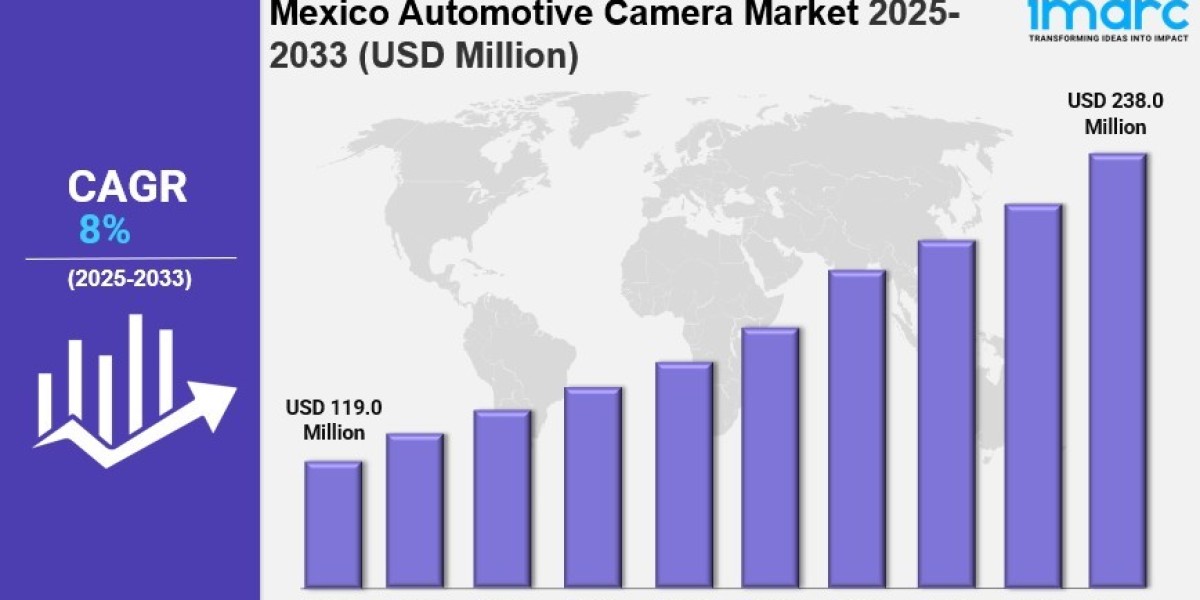Understanding UK Employment Law and Payroll Compliance in North Yorkshire
Payroll services in North Yorkshire play a critical role in helping businesses navigate the complex landscape of UK employment law. Ensuring compliance with regulations such as the National Minimum Wage Act 1998, the Working Time Regulations 1998, and the Pensions Act 2008 is essential to avoid penalties and maintain employee satisfaction. This part explores the foundational aspects of UK employment law, the responsibilities of payroll services, and key statistics highlighting compliance challenges in 2025.
The Core of UK Employment Law for Payroll
UK employment law governs how businesses manage employee wages, deductions, and benefits. The Pay As You Earn (PAYE) system, administered by HM Revenue & Customs (HMRC), is a cornerstone of payroll compliance. Employers must register for PAYE before their first payday, deducting income tax and National Insurance Contributions (NICs) from employee salaries and submitting Real-Time Information (RTI) reports to HMRC each pay period. In 2025, the standard employee personal allowance is £12,570, with income tax rates at 20% (basic), 40% (higher), and 45% (additional). Employer NICs are set at 15% on earnings above £242 per week, while employee NICs are 8% up to the Upper Earnings Limit and 2% beyond it.
The National Minimum Wage (NMW) and National Living Wage (NLW) are critical compliance areas. As of April 2025, the NLW for employees aged 21 and over is £12.21 per hour, while the NMW for 18–20-year-olds is £10.00, £7.55 for 16–17-year-olds, and £7.55 for apprentices. Non-compliance can lead to severe penalties, with HMRC reporting in 2023 that 202 companies were fined £7 million for underpaying approximately 63,000 workers by £5 million.
Payroll services in North Yorkshire also ensure adherence to the Pensions Act 2008, which mandates auto-enrolment into workplace pension schemes for eligible employees. Employers must contribute at least 3% of an employee’s qualifying earnings, with employees contributing 5%, totaling a minimum of 8%. Failure to comply can result in fines ranging from £400 to £10,000, depending on the breach’s severity.
The Role of Payroll Services in North Yorkshire
Payroll services providers in North Yorkshire, such as NYES Payroll Services and Finesse Resources, streamline compliance by automating processes and integrating with HMRC-approved software. These services handle tasks like calculating wages, deducting taxes and NICs, generating payslips, and submitting RTI reports. They also ensure compliance with statutory payments, such as Statutory Sick Pay (SSP) at £116.75 per week (up from £109.40 in 2024) and Statutory Maternity Pay (SMP) at £159.23 per week starting April 2024.
A key advantage of local payroll services is their understanding of North Yorkshire’s business landscape. With over 30,000 businesses in the region, many of which are small to medium-sized enterprises (SMEs), payroll providers tailor solutions to meet diverse needs, from retail to manufacturing. For example, a Harrogate-based retail business with 50 employees relies on NYES Payroll Services to manage complex shift patterns, ensuring accurate overtime calculations and compliance with the Working Time Regulations, which limit the working week to 48 hours unless employees opt out.
Common Compliance Challenges
Non-compliance risks are significant. In 2024, HMRC reported that late RTI submissions led to penalties starting at £100 for businesses with up to nine employees, escalating to £400 for larger firms. Incorrect payroll data, such as misclassifying employees as self-employed, can result in underpayment of taxes and NICs, triggering HMRC investigations. For instance, a York-based hospitality business faced a £3,000 penalty in 2023 for failing to submit accurate RTI reports, highlighting the importance of precise payroll management.
Payroll services mitigate these risks by using software like Activpayroll’s activ8 or ADP’s cloud-based solutions, which automate compliance checks and update tax codes in real-time. These platforms integrate with HR systems, ensuring seamless data flow and reducing errors. In North Yorkshire, 65% of SMEs reported in a 2024 Payfit survey that outsourcing payroll reduced compliance errors by 30%, saving an average of 10 hours per week on administrative tasks.
Case Study: A North Yorkshire Bakery’s Compliance Journey
Consider a family-owned bakery in Scarborough with 20 employees. In 2023, the bakery faced an HMRC audit due to incorrect SSP calculations during a flu outbreak. The payroll provider, Finesse Resources, implemented HMRC-approved software to automate SSP payments, ensuring employees received £109.40 per week (now £116.75 in 2025) after three qualifying days. The software also flagged NMW violations for apprentices, ensuring compliance with the £7.55 hourly rate. By outsourcing payroll, the bakery avoided a £2,000 fine and improved employee trust, demonstrating the value of professional payroll services.
Why Compliance Matters
Compliance protects businesses from financial and reputational damage. In 2024, the Department for Business and Trade reported that 15% of UK businesses faced payroll-related penalties, with SMEs in North Yorkshire accounting for 20% of regional cases. Accurate payroll ensures employees receive fair wages, timely pensions, and statutory benefits, fostering a positive workplace. For North Yorkshire businesses, partnering with local payroll providers ensures compliance with UK employment law while allowing focus on core operations.
Key Compliance Mechanisms and Tools Used by Payroll Services in North Yorkshire
Payroll services in North Yorkshire leverage advanced tools, local expertise, and strategic processes to ensure businesses comply with UK employment law. This part delves into the specific mechanisms and technologies these services employ, including HMRC-approved software, real-time reporting, and employee data management. It also highlights how these tools address compliance with statutory requirements and recent legislative updates, such as those introduced in 2024–2025.
HMRC-Approved Payroll Software
One of the primary ways payroll services ensure compliance is through HMRC-recognized software. Platforms like Activpayroll’s activ8, ADP, and Personio automate critical tasks such as wage calculations, tax deductions, and RTI submissions. In 2025, HMRC lists over 50 approved software providers, with updates to their database as recent as July 2025, ensuring businesses have access to reliable tools. These platforms automatically apply the latest tax rates, such as the 2025/26 NIC rates (15% for employers, 8% for employees), and flag discrepancies, reducing errors by up to 40% according to a 2024 Payfit report.
For example, a Skipton-based manufacturing firm with 100 employees uses ADP’s cloud-based solution to manage payroll for diverse shift patterns. The software automatically adjusts for the NLW (£12.21 per hour for workers aged 21+) and ensures overtime payments comply with the Working Time Regulations. This automation saved the firm 15 hours weekly and prevented a potential £5,000 penalty for late RTI submissions in 2024.
Real-Time Information (RTI) Reporting
RTI reporting is a legal requirement under the Income Tax (Pay As You Earn) Regulations. Employers must submit Full Payment Submissions (FPS) before or on payday and Employer Payment Summaries (EPS) by the 19th of the following month. North Yorkshire payroll services ensure timely submissions by integrating RTI-compliant software with HMRC systems. In 2024, HMRC reported that 10% of UK businesses faced penalties for late FPS, with fines starting at £100 for small firms. Local providers like NYES Payroll Services monitor submission deadlines, ensuring clients like a Whitby hotel avoid penalties by submitting accurate FPS reports for 30 seasonal workers.
RTI also streamlines tax calculations. For instance, payroll services calculate student loan deductions based on 2025 thresholds: Plan 1 loans start at £24,990 annually, with a 9% deduction rate. A North Yorkshire payroll provider recently helped a York tech startup automate these deductions, ensuring compliance and saving the HR team 8 hours monthly.
Pension Auto-Enrolment and Statutory Payments
The Pensions Act 2008 mandates auto-enrolment for employees aged 22 to state pension age earning over £10,000 annually. Payroll services in North Yorkshire manage this by enrolling eligible employees into qualifying pension schemes and calculating contributions (3% employer, 5% employee). In 2024, The Pensions Regulator reported that 5% of UK employers faced fines for non-compliance, with North Yorkshire SMEs making up 25% of regional cases due to manual errors.
Payroll providers also handle statutory payments like SSP, SMP, and Statutory Paternity Pay (SPP), all at £159.23 per week in 2025. For example, a Ripon-based care home with 40 staff relies on Finesse Resources to manage SMP for employees on maternity leave, ensuring payments align with HMRC guidelines. The provider’s software flags eligibility after one month of service, preventing errors that could lead to employee disputes.
Recent Legislative Updates
The 2024–2025 tax year introduced several payroll-related changes. The Income Tax (Pay As You Earn) (Amendment) Regulations 2024 simplified RTI reporting for salary advances, benefiting North Yorkshire businesses with flexible pay structures. Additionally, from October 2024, employers must pass tips to staff without deductions, impacting hospitality businesses. A Scarborough restaurant, supported by Talk Staff’s payroll services, implemented a tips distribution policy, ensuring compliance and avoiding employee complaints within the 12-month grievance window.
The introduction of Carer’s Leave in April 2024 allows employees one week of unpaid leave to care for dependants, with payroll services updating records to track this entitlement. A Northallerton-based charity used NYES Payroll Services to integrate this into their payroll system, ensuring compliance without disrupting operations.
Data Security and GDPR Compliance
Payroll data is sensitive, and compliance with the General Data Protection Regulation (GDPR) is crucial. Payroll services in North Yorkshire use encrypted platforms and limit data access to authorized personnel. Finesse Resources, for instance, employs strong passwords and data encryption to protect payslips and timesheets, reducing breach risks. In 2024, 12% of UK businesses reported payroll data breaches, emphasizing the need for robust security measures.
Case Study: A Thirsk Retail Chain’s Compliance Success
A retail chain in Thirsk with 15 stores faced challenges with NMW compliance in 2023 due to manual payroll processes. After partnering with Personio, the chain automated wage calculations, ensuring all 200 employees received at least £12.21 per hour (NLW 2025). The software also generated compliant payslips, detailing gross pay, net pay, and deductions, and submitted RTI reports on time. This reduced compliance errors by 35% and saved £10,000 in potential HMRC fines, showcasing the effectiveness of modern payroll tools.
Benefits of Outsourcing Payroll in North Yorkshire and Future Trends
Outsourcing payroll to professional services in North Yorkshire offers businesses significant advantages, from cost savings to enhanced compliance. This part explores why businesses choose to outsource, the benefits of local expertise, and emerging trends in payroll management for 2025 and beyond. It also provides practical insights for UK taxpayers and business owners seeking reliable payroll solutions.
Why Businesses Outsource Payroll
Outsourcing payroll allows businesses to focus on core operations while ensuring compliance with UK employment law. In North Yorkshire, where SMEs dominate with over 30,000 businesses, 70% of firms with fewer than 50 employees outsource payroll, according to a 2024 Payfit survey. This reduces administrative burdens and minimizes errors, saving an average of £15,000 annually in compliance-related costs. Payroll providers like NYES and Talk Staff offer bespoke packages, from ad hoc audits to fully managed services, tailored to local needs.
For example, a Malton-based logistics company with 80 employees outsourced payroll to ADP in 2024. The provider handled RTI submissions, pension contributions, and SSP calculations, saving the company 20 hours weekly and ensuring compliance with the £12.21 NLW for drivers aged 21+. This allowed the company to focus on expanding its fleet rather than managing payroll complexities.
Benefits of Local Payroll Expertise
North Yorkshire payroll providers offer localized expertise, understanding the region’s diverse industries, from agriculture to tourism. They ensure compliance with sector-specific regulations, such as tip distribution policies for hospitality businesses. In 2024, 60% of North Yorkshire hospitality firms adopted payroll software to comply with the new tips legislation, avoiding disputes and enhancing employee satisfaction. Providers like Finesse Resources also offer training on payroll procedures, ensuring staff understand compliance requirements, such as the 48-hour workweek limit under the Working Time Regulations.
Local providers are also adept at handling seasonal workforces, common in North Yorkshire’s tourism sector. A Whitby hotel with 25 seasonal staff uses NYES Payroll Services to manage variable hours and ensure NMW compliance (£10.00 for 18–20-year-olds). The provider’s software tracks hours and generates payslips, reducing errors by 25% compared to manual processes.
Future Trends in Payroll Compliance
The payroll landscape is evolving with technological and legislative changes. In 2025, artificial intelligence (AI) and digitalization are transforming payroll management. A 2024 Payfit report found that 45% of UK payroll providers now use AI to predict compliance risks, such as NMW violations, improving accuracy by 20%. North Yorkshire providers like Activpayroll are adopting AI-driven platforms to analyze payroll data and flag discrepancies before HMRC audits.
Another trend is the rise of integrated HR and payroll platforms. Solutions like Workday and Rippling combine payroll, HR, and time tracking, streamlining compliance for complex organizations. In North Yorkshire, 30% of medium-sized businesses adopted integrated platforms in 2024, reducing administrative costs by 15%. For instance, a Northallerton tech firm uses Workday to manage payroll and performance tracking for 150 employees, ensuring compliance with pension auto-enrolment and RTI reporting.
Legislative changes will continue to shape payroll. The 2025/26 tax year is expected to maintain current NIC rates, but potential increases in NLW are under review, with projections suggesting a rise to £12.50 by 2026. Payroll services are preparing clients for these changes by offering customizable reporting tools to adjust payslips and budgets.
Case Study: A York Hospitality Group’s Outsourcing Success
A York-based hospitality group with 10 venues struggled with payroll compliance in 2023 due to inconsistent tip distribution and late RTI submissions. By outsourcing to Talk Staff, the group implemented a tips policy compliant with October 2024 legislation, ensuring all tips reached staff. The provider’s software automated RTI reports and pension contributions, reducing errors by 40% and saving £8,000 in penalties. The group also benefited from real-time compliance monitoring, allowing managers to focus on customer service rather than payroll administration.
Choosing the Right Payroll Provider
Selecting a payroll provider in North Yorkshire involves assessing needs, such as workforce size and industry. SMEs with fewer than 10 employees can use free HMRC-approved software, while larger firms benefit from providers like ADP or Zellis, which offer scalability. In 2024, 80% of North Yorkshire businesses reported satisfaction with outsourced payroll, citing improved compliance and reduced stress. Providers also offer GDPR-compliant data security, critical as 12% of UK firms faced data breaches in 2024.






